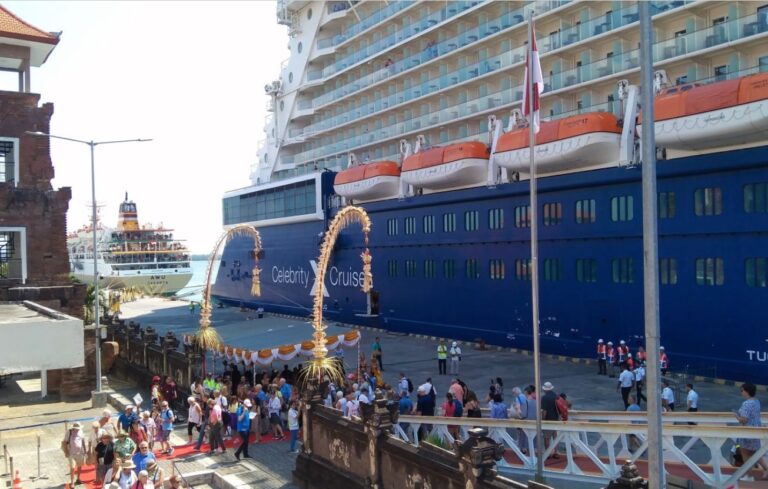Indonesia’s hospitality sector particularly in the hotel and restaurant Industry is currently facing significant challenges, as revealed by the Ministry of Investment and Downstream Industry.
According to Deputy for Investment Services Iwan Suryana, the realization of domestic investment in hotels and restaurants ranks 13th, while foreign investment contributions place the sector at 16th, with a total investment value of IDR 14 trillion (approximately USD 856 million) in 2024.
Iwan as reported by bisnis.com emphasized the need for improvement, stating, “The contribution from hotels and restaurants still needs to be improved as it is still outside the top 10.” This highlights the urgent need for new tourism attractions to stimulate growth in the industry.
Challenges Facing Indonesia’s Hospitality Sector
The hotel and restaurant industry in Indonesia continues to face numerous challenges that hinder its growth. Iwan Suryana highlighted that this sector is heavily dependent on the tourism industry. Supporting factors such as accommodation, transportation, and road infrastructure significantly impact tourist attraction, which ultimately affects investment in the hospitality sector.
During a discussion at the National Conference of the Indonesian Hotel and Restaurant Association, Iwan acknowledged complaints from entrepreneurs regarding the difficulties in obtaining and renewing groundwater extraction permits.
This regulatory hurdle poses a significant barrier to operations, impacting the ability of businesses to provide essential services. Additionally, the uneven development of Detailed Spatial Planning in various regions complicates the situation further, as a clear spatial plan is crucial for facilitating business permits and ensuring smooth operations.
The Role of New Tourism Attractions to Boost Investments
The development of new tourism segments is essential for addressing the evolving preferences of travelers in Indonesia. Rizki Handayani Mustafa, the Deputy for Industry and Investment at the Ministry of Tourism, is actively working on initiatives such as wellness tourism, gastronomy, and marine tourism.
These segments are designed to attract both local and international tourists, emphasizing the need for new sources to enhance the performance of the national tourism sector. Similarly, marine tourism can be maximized by developing packages for boating, diving, and yachting.
“Indonesia already has these tourism segments, but they have not been expanded and packaged better,” Rizki stated during the National Conference of the Indonesian Hotel and Restaurant Association on Tuesday, February 11, 2025.
Government Initiatives to Support Growth
To enhance the investment climate in Indonesia’s hotel and restaurant sector, the government has introduced several initiatives aimed at simplifying the licensing process. One significant measure is the Online Single Submission (OSS) platform, developed by the Ministry of Investment.
This platform allows business operators to manage their licensing requirements without the need for face-to-face interactions with government officials, enabling them to complete the process from anywhere.
Additionally, the government has issued Minister of Energy and Mineral Resources Regulation No. 14/2024, which removes the requirement for drilling permits prior to groundwater extraction. This regulation is expected to expedite the licensing process, making it more efficient for businesses in the hospitality industry.
The government recognizes that the hotel and restaurant sector has substantial potential for investment growth, but this potential can only be realized if various investment barriers are effectively addressed.
Unlocking Potential in Indonesia’s Iconic Destinations
Indonesia is filled with iconic tourist destinations that has immense potential for growth in the hotel and restaurant sector.
For instance, Bali, known for its stunning beaches and vibrant culture, continues to attract millions of international visitors each year. This influx creates significant opportunities for investment in hospitality services, from luxury resorts to local dining experiences.
Similarly, Sumbawa and Lombok are emerging as attractive destinations, offering pristine landscapes and unique cultural experiences. The government has been promoting these areas to diversify tourism beyond Bali, encouraging investments in hotels and restaurants that cater to both domestic and international tourists.
A Path Forward for Indonesia’s Hospitality Sector
Indonesia’s hospitality sector offers substantial growth opportunities driven by its diverse tourism landscape. By addressing investment barriers and utilizing streamlined processes like the Online Single Submission platform, the government can foster a favorable environment for business development, ultimately enhancing the overall appeal of the hospitality industry and lead to more Investments in the future.
Source: ekonomi.bisnis.com, industry.kontan.co.id
Image: Getty Images

















